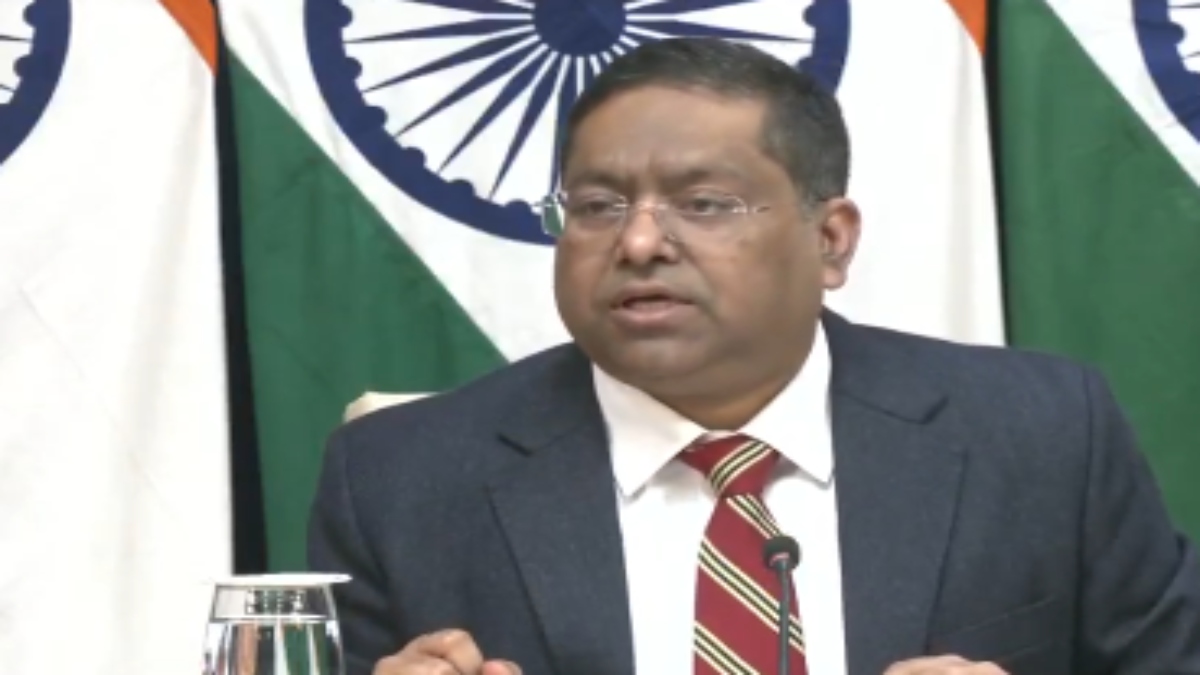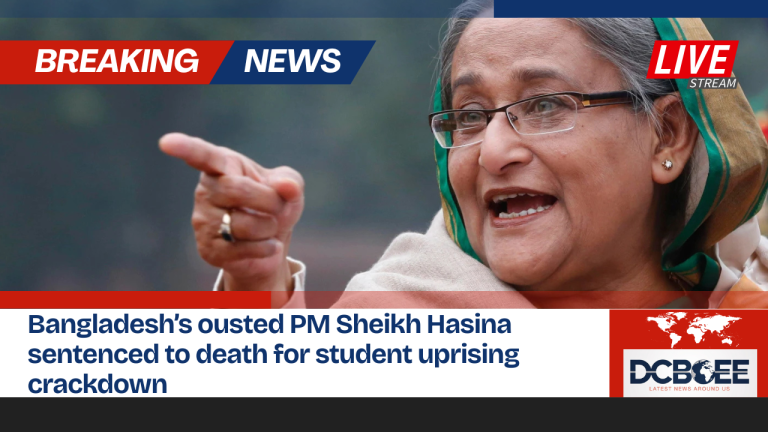)
India on Monday reacted to the death sentence issued by a tribunal against former Bangladesh Prime Minister Sheikh Hasina, who was convicted of “crimes against humanity” over student protests in Dhaka last year, which led to her stepping down from the post. Hasina had fled to India after the fall of the government.
India on Monday (November 17, 2025) reacted to the death sentence issued by a tribunal against former Bangladesh Prime Minister Sheikh Hasina, who was convicted of “crimes against humanity” linked to last year’s student protests in Dhaka, which ultimately led to her stepping down from the post.
“India is committed to the best interests of the people of Bangladesh, including peace, democracy, inclusion and stability in that country,” the Ministry of External Affairs said.
“We will always remain constructively engaged with all stakeholders,” the statement said.
India’s reaction comes after Bangladesh requested the extradition of “fugitive accused” Sheikh Hasina, calling it an “imperative responsibility” for New Delhi to ensure her return.
Hasina had fled to India after the government fell following massive student-led protests in August last year.
Hasina found guilty, sentenced to death
Bangladesh’s International Criminal Tribunal (ICT) convicted Hasina on three charges: incitement, ordering the killings and failing to prevent atrocities.
“We have decided to award him only one punishment – that is, death sentence,” the court ruled.
No democratic mandate: Hasina
Rejecting the verdict, Hasina called it “the work of a rigged tribunal set up and presided over by an unelected government with no democratic mandate”.
Along with Hasina, former interior minister Asaduzzaman Khan Kamal was also sentenced to death in absentia after being found guilty on four counts of “crimes against humanity”.
Bangladesh wants Hasina’s return from India
Bangladesh’s Foreign Ministry cited its extradition agreement with India to urge the return of the former prime minister, who has been living in New Delhi since her ouster from power.
The Bangladeshi ministry said, “Granting asylum by any other country to these individuals, who have been convicted of crimes against humanity, would be an extremely unfriendly act and a miscarriage of justice.”
In a separate statement in Bengali, Bangladesh’s Foreign Ministry said any country granting asylum to Hasina or Khan would be violating international law.
“The Tribunal urges all countries to cooperate in arresting these two individuals and handing them over to Bangladeshi authorities. The Tribunal also requests the United Nations to take necessary measures to ensure their extradition to Bangladesh,” the statement said.
end of article


)
)